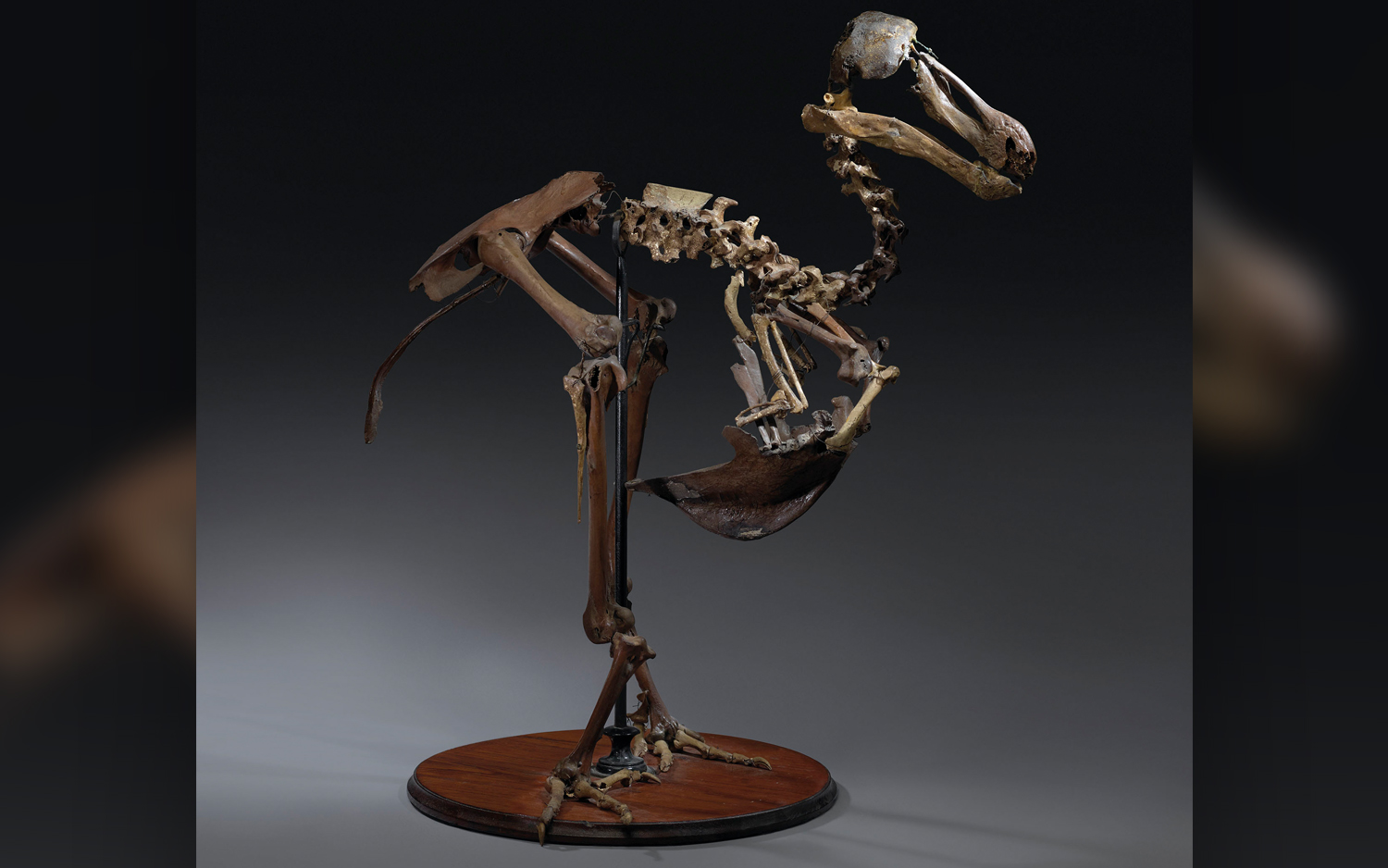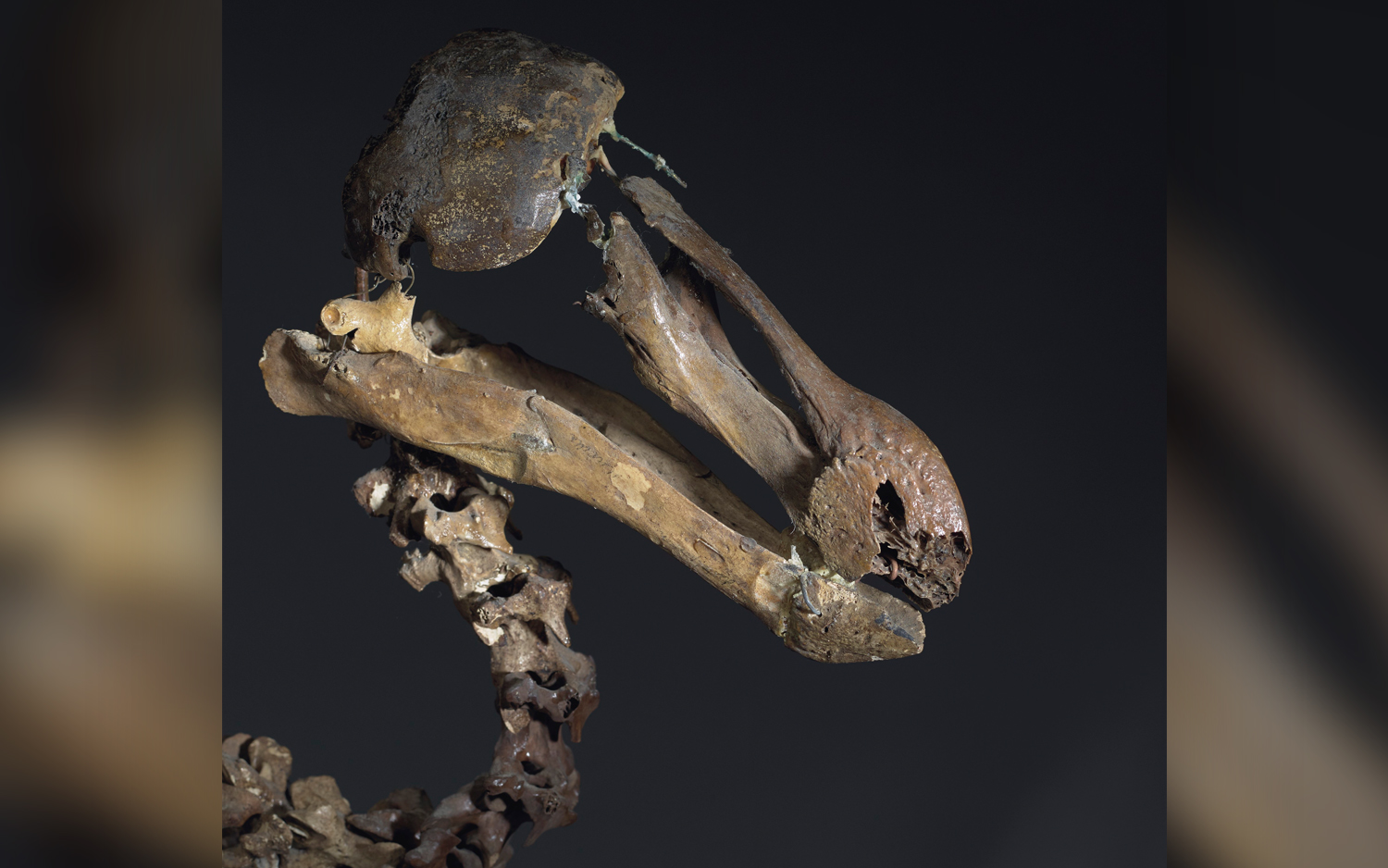Rare Dodo Skeleton May Fetch Over $700K at Auction

You may have heard of the hapless dodo — an endearingly squat, toddler-size flightless bird — that was driven to extinction in the late 1600s and hasn't been seen for centuries. But a rare mounted skeleton of this iconic creature will soon be ushered into the spotlight.
On May 24, Christie's in London will offer a dodo skeleton for auction in its Science and Natural History sale. Bidding for the mounted dodo bones will start at $500,000 and may go higher than $700,000, according to the auction house's website.
The skeleton is a featured item in the sale, which also includes fragments of meteorites and moon rocks; centuries-old science equipment; a d fossils of dinosaurs, marine animals and dragonflies, some dating to more than 100 million years ago. [In Photos: The Famous Flightless Dodo Bird]
Dodos, which are relatives of modern pigeons, were once found exclusively on the island of Mauritius to the east of Madagascar. When Dutch explorers established an outpost on Mauritius in 1638, they discovered that the large, flightless birds were quite delicious. Within decades, the dodos were gone, decimated by human hunters and invasive predators.
Because dodos had no natural predators (before the Dutch arrived, that is), they were unafraid of people, which earned them the reputation of being unintelligent. However, a recent study that modeled dodo brains suggests that the birds were at least as intelligent as their pigeon cousins, which can recognize and remember human faces.
The dodo skeleton in the auction was assembled around the beginning of the 19th century by the French amateur naturalist Paul Carié, Christie's representatives said in a statement. Carié owned the land on Mauritius where the bones were found, a swamp called Mare aux Songes. From a jumble of remains, Carié constructed a composite skeleton using fossilized and unfossilized bones from several individual dodos, according to an item description.

Carié's dodo skeleton is the last known near-complete specimen assembled in the 19th century, and the dodo has been privately owned by Carié's family since then, according to Christie's.
Sign up for the Live Science daily newsletter now
Get the world’s most fascinating discoveries delivered straight to your inbox.
Other items available for bidding include an intact elephant bird egg, collected pre-17th century in Madagascar; a reddish megalodon tooth found in North Carolina; a clutch of fossil ornithischian dinosaur eggs dating to the late Cretaceous period; and an incredibly preserved fossil of an adult female ichthyosaur and the remains of two juveniles, estimated to be around 184 million years old.
The auction of all Science and Natural History items will take place at Christie's in London on May 24, beginning at 11 a.m. local time.
- 6 Extinct Animals That Could Be Brought Back to Life
- Wipe Out! History's 7 Most Mysterious Extinctions
- In Images: Wacky Animals That Lived on Mauritius
Originally published on Live Science.

Mindy Weisberger is an editor at Scholastic and a former Live Science channel editor and senior writer. She has reported on general science, covering climate change, paleontology, biology and space. Mindy studied film at Columbia University; prior to Live Science she produced, wrote and directed media for the American Museum of Natural History in New York City. Her videos about dinosaurs, astrophysics, biodiversity and evolution appear in museums and science centers worldwide, earning awards such as the CINE Golden Eagle and the Communicator Award of Excellence. Her writing has also appeared in Scientific American, The Washington Post and How It Works Magazine. Her book "Rise of the Zombie Bugs: The Surprising Science of Parasitic Mind Control" will be published in spring 2025 by Johns Hopkins University Press.









